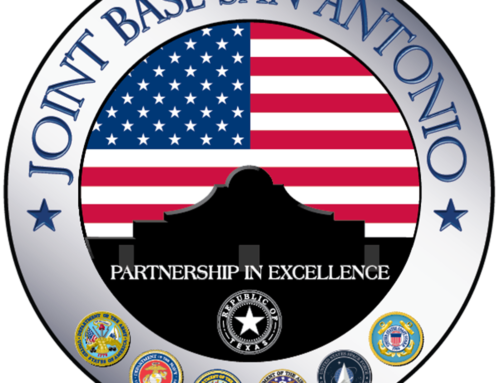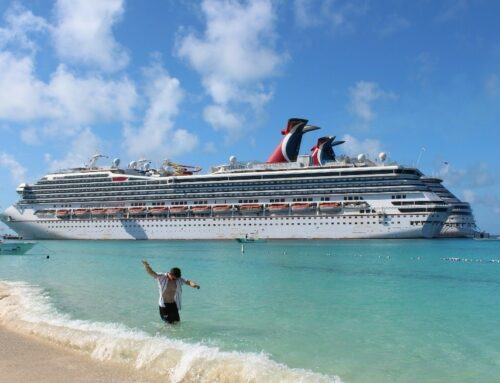The Safer Seas Act: A New Era for Maritime Safety and Compliance
 The maritime industry stands at a crucial juncture: the enactment of the Safer Seas Act (SSA) in December 2022, incorporated into the National Defense Authorization Act for Fiscal Year 2023, signifies a monumental shift in the U.S. federal government’s approach to managing incidents of sexual assault and sexual harassment (SASH) aboard vessels. This landmark legislation compels senior maritime industry leaders to reassess and fortify their operational frameworks, ensuring strict adherence to these new regulatory mandates.
The maritime industry stands at a crucial juncture: the enactment of the Safer Seas Act (SSA) in December 2022, incorporated into the National Defense Authorization Act for Fiscal Year 2023, signifies a monumental shift in the U.S. federal government’s approach to managing incidents of sexual assault and sexual harassment (SASH) aboard vessels. This landmark legislation compels senior maritime industry leaders to reassess and fortify their operational frameworks, ensuring strict adherence to these new regulatory mandates.
The Genesis of the SSA
The catalyst for the SSA was a powerful, anonymous narrative penned by “Midshipman X,” published in September 2021. Her harrowing account of SASH within the maritime sector served as a wake-up call, spurring a movement for substantial reforms. The SSA emerged as a legislative response to address the pervasive issue of SASH in the maritime environment. Key among its measures is the empowerment of the U.S. Coast Guard (USCG) to revoke or suspend credentials of individuals found guilty of SASH offenses. Additionally, it mandates comprehensive reporting of SASH complaints and incidents by owners and operators of U.S.-flagged commercial service vessels.
The SSA has set in motion various requirements, with a notable grace period provided for specific actions, such as the installation of onboard audio and video surveillance equipment by December 23, 2024. However, the bulk of the SSA’s mandates are already in effect, necessitating immediate and thorough action from maritime leadership. This includes developing, documenting, and implementing comprehensive policies and procedures to comply with the expanded requirements.
USCG’s Role: Clarifying Employer Responsibilities
The Safer Seas Act also notably broadens the responsibilities of maritime employers, stipulating the integration of extensive SASH policies within companies’ safety management systems, encompassing annual training on SASH prevention, bystander intervention, and reporting and responding to incidents. Following the SSA’s enactment, the USCG has issued detailed guidance through Marine Safety Information Bulletins and policy letters, outlining required reporting mechanisms and other control measures.
Employers must ensure their policies cover all forms of harassment, including those based on gender, sexual orientation, race, and other attributes. The Act’s broad language significantly widens the scope of reportable incidents, urging industry leaders to err on the side of caution and report all forms of harassment.
Reporting Protocols: A Closer Look
The SSA also mandates immediate reporting of incidents upon knowledge acquisition by vessel owners or operators. Required report details include personal and vessel information, incident timing and location, and a brief incident description. Reporting avenues include the Coast Guard Investigative Service (CGIS) Tips app and email, with options for anonymity. The USCG also maintains a 24/7 watch to field reports of sexual misconduct via the National Command Center phone number, 202-372-2100.
Video and audio surveillance systems are now required on certain vessels, including commercial, non-passenger-carrying vessels which meet specific criteria:
 Documented vessels with overnight accommodations for at least 10 individuals on board that are (a) on a voyage of at least 600 miles that crosses seaward of the Boundary Line or (b) at least 24 meters (79 feet) in overall length and required to have a load line under Title 46, Chapter 51;
Documented vessels with overnight accommodations for at least 10 individuals on board that are (a) on a voyage of at least 600 miles that crosses seaward of the Boundary Line or (b) at least 24 meters (79 feet) in overall length and required to have a load line under Title 46, Chapter 51;- Documented vessels of at least 500 gross tons on an international voyage;
- Vessels with overnight accommodations for at least 10 individuals on board that are operating for no less than 72 hours on waters superjacent to the Outer Continental Shelf.
Any noncompliance of these new regulations can result in fines up to $55,000 per violation. This underscores the serious approach towards eradicating SASH in the maritime sector.
The Path to Full Compliance
Over a year into the SSA’s implementation, the journey towards complete compliance and understanding is ongoing. The USCG’s guidance has been helpful, yet aspects of the SSA, like the definition of “harassment,” remain open to interpretation. Vessel owners, operators, and employers must not only familiarize themselves with these requirements but also engage in continuous education and adaptation.
The SSA and the USCG’s guidance demand a unified, proactive approach from all maritime stakeholders. It’s essential for maritime companies to embed these regulations into their operations, fostering a culture synonymous with safety, respect, and integrity. The path forward for the maritime industry is clear: embrace these changes wholeheartedly and steer towards a future where safety and respect are paramount.
We at the Herd Law Firm are proud to fight for seamen, seawomen, and maritime workers and passengers in all types of personal injury claims. We never waver in our commitment to help these maritime workers and their families when they are killed or injured.
1/31/2024










